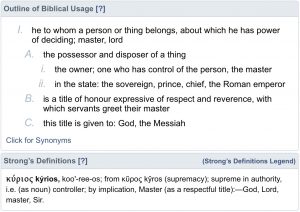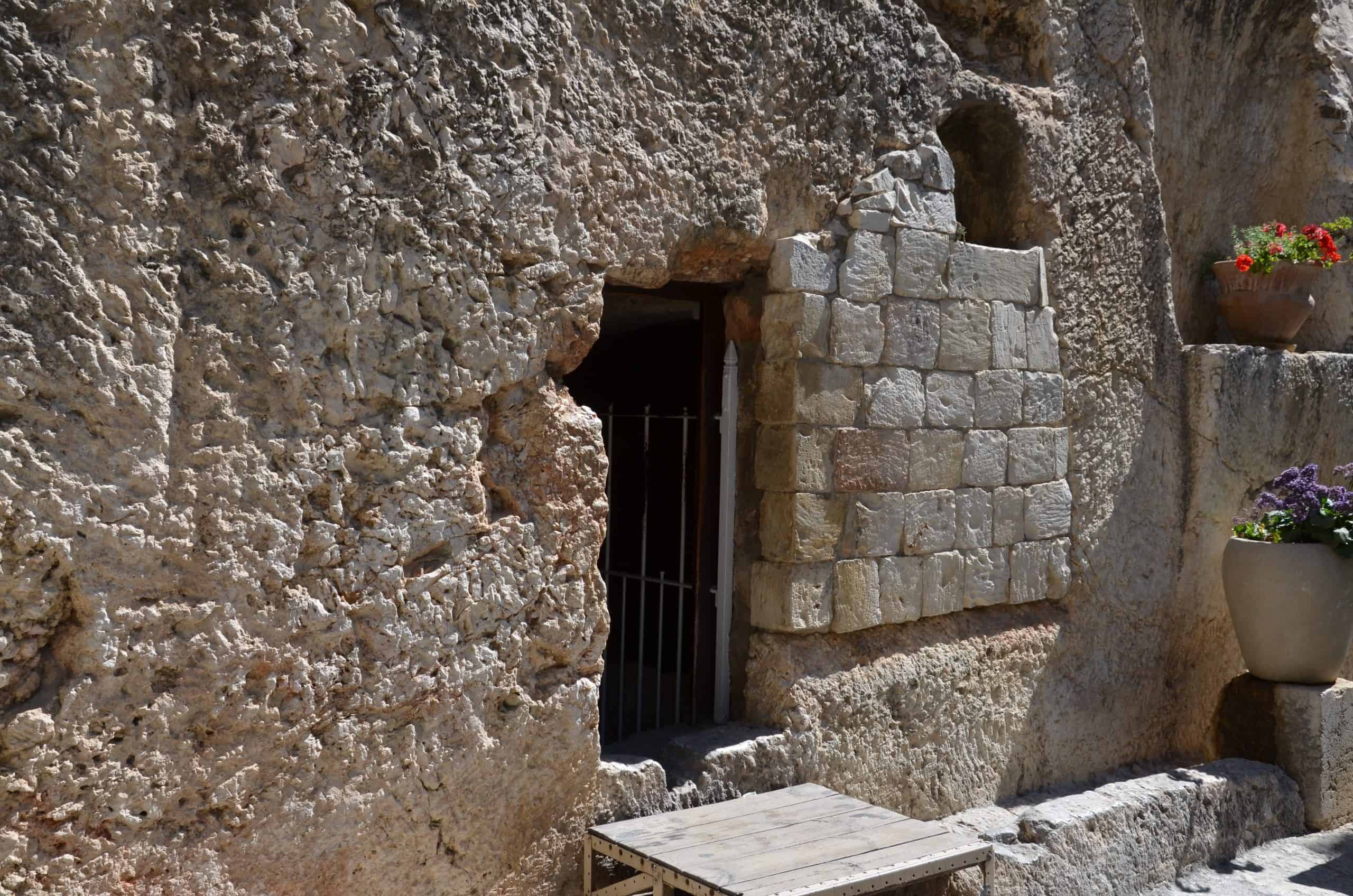Tomb, thou shalt not hold Him longer;
Death is strong, but Life is stronger;
Stronger than the dark, the light;
Stronger than the wrong, the right;
Faith and Hope triumphant say
Christ will rise on Easter Day.
—Phillips Brooks—
The resurrection is the keystone of the arch on which our faith is supported. If Christ has not risen, we must impeach all those witnesses for lying. If Christ has not risen, we have no proof that the crucifixion of Jesus differed from that of the two thieves who suffered with him. If Christ has not risen, it is impossible to believe his atoning death was accepted.
—Dwight L. Moody—
Without the resurrection, the cross is meaningless.
—Billy Graham—
Key point: Jesus’ resurrection from the dead indicates far more than the reality that He was victorious over death.
How can a person be saved? In other words, how can an individual enter into a right relationship with God so that he or she will spend eternity with God in heaven after death? In what we now know as Romans 10:9-10, under the inspiration of the Holy Spirit, the apostle Paul wrote,
9 If you declare with your mouth, “Jesus is Lord,”and believe in your heart that God raised him from the dead, you will be saved. 10 For it is with your heart that you believe and are justified, and it is with your mouth that you profess your faith and are saved.
Let’s look closely at the two items in verse 9 Paul indicates are requirements for salvation, or forgiveness of sins and a right relationship with God.
Declare that Jesus Is Lord
First, Paul says you must “declare with your mouth, ‘Jesus is Lord.'” What does this mean? The Greek word translated “Lord” is transliterated kyrios. Here is a portion of the information available on that word at www.blueletterbible.org, a website with numerous Bible study tools.

Simply put, in the context of Romans 10:9, declaring that Jesus is Lord means confessing or stating verbally that Jesus is God, or God’s Son and essentially God Himself. Jesus not only claimed to be God; He also provided irrefutable evidence that He was God through His miracles.
So, declaring that Jesus is Lord means agreeing with Him about who He was and is.
Believe God Has Raised Him from the Dead
It is the second item I’d like to focus on in the time and space we have left. Paul writes that to be saved, you also must “believe in your heart that God raised him [Jesus] from the dead.” Thus, merely saying “Jesus is Lord” is not enough. One has to sincerely believe “God [the Father] raised him from the dead.”

Just what does it mean to believe that God raised Jesus from the dead? In other words, in addition to the fact it means Jesus returned to life on Sunday after having died by crucifixion on the previous Passover Friday (three days were involved), what are some things Jesus’ resurrection demonstrates? I have complied a list of 15 things. My list is not exhaustive, but it does include some very important items. It shows the connections between the resurrection and a host of other realities that are consistent with it.
Affirming the resurrection of Christ also means affirming a number of other significant and profound realities, all of which are related, like the links in a chain.
Profound Realities
If you’ve never realized it before, you need to know that affirming the resurrection of Christ also means affirming a number of other significant and profound realities, all of which are related, like the links in a chain. The apostle Paul himself upheld the truth that without the resurrection, a lot of other things we as Christians take for granted simply couldn’t have occurred:
13 If there is no resurrection of the dead, then not even Christ has been raised. 14 And if Christ has not been raised, our preaching is useless and so is your faith. 15 More than that, we are then found to be false witnesses about God, for we have testified about God that he raised Christ from the dead. But he did not raise him if in fact the dead are not raised. 16 For if the dead are not raised, then Christ has not been raised either. 17 And if Christ has not been raised, your faith is futile; you are still in your sins. 18 Then those also who have fallen asleep in Christ are lost. 19 If only for this life we have hope in Christ, we are of all people most to be pitied (1 Cor. 15:13-19).
Some of these items you’ll have understood before — but probably not all.
First, Jesus’ resurrection proves that Jesus Christ was and is God. Go here, here, and here.
Second, Jesus’ resurrection demonstrates conclusively that right and wrong exist. In other words, that absolutes exist and are applicable to all — even God. While reality, including right and wrong and absolute truth in its broadest sense, actually is determined by God’s own character, God is bound by His holy character. He cannot act outside His attributes; He must act in ways consistent with and not contrary to them. This means He must judge sin. Christian businessman Robert Laidlaw offers a powerful explanation of this in his essay, “The Reason Why.”
After addressing a meeting on one occasion, a young man asked me, “Do you think it fair of God to set the standard of holiness so high that we cannot reach it, and then judge us for falling short?” I replied, “God has not set an arbitrary standard of holiness. He has not really set a standard at all; He is the standard. He is holiness in the absolute—holiness personified—and to preserve His own character, He must maintain that absolute standard in all His dealings with man, irrespective of the tremendous problems it creates for both Him and us.”
Did you get that? God must maintain his “absolute standard [of holiness] in all His dealings with man, irrespective of the tremendous problems it creates for both Him and us.” This is why I previously wrote,

In the physical realm, Jesus could and did heal instantly and completely. This should not surprise us, for He was God. Yet there was something He could not do. He could not pave the way for people to be forgiven by the Father without going to the cross and dying a substitutionary death.
In the above short paragraph are embedded several important, related insights. Third, Jesus’ resurrection demonstrates that Jesus was sinless, that He was and is holy. It cannot be otherwise, for, as we already have affirmed, He was and is God.
-
-
- In 2 Corinthians 5:21 Paul wrote, “God made him who had no sin to be sin for us, so that in him we might become the righteousness of God.”
- In 1 Peter 1:18-19, Peter declared, “For you know that it was not with perishable things such as silver or gold that you were redeemed from the empty way of life handed down to you from your ancestors, but with the precious blood of Christ, a lamb without blemish or defect.”
- In 1 Peter 3:18 Peter also said, “For Christ also suffered once for sins, the righteous for the unrighteous, to bring you to God.He was put to death in the body but made alive in the Spirit.”
-
Here are all three of these passages, along with Hebrews 10:5-14, which also testifies to Christ’s sinlessness. So does Acts 2:22-32, which represents a portion of Peter’s sermon at Pentecost, the arrival of the Holy Spirit, and the birth of the church.
Fourth, because Jesus was sinless, He did not have to die for His own sin, but — and this is the fifth point — because He did die, His death was substitutionary. Jesus’ died in the place of sinners and experienced God’s wrath against sin Himself, so sinners who rely on Him for forgiveness wouldn’t have to bear the brunt of that wrath. We’ve already looked at passages in the New Testament that affirm this, but Old Testament prophecies testify to it as well. Hundreds of years before Jesus was born, the prophet Isaiah wrote,
53:4 Surely he took up our pain
and bore our suffering,
yet we considered him punished by God,
stricken by him, and afflicted.
5 But he was pierced for our transgressions,
he was crushed for our iniquities;
the punishment that brought us peace was on him,
and by his wounds we are healed.
6 We all, like sheep, have gone astray,
each of us has turned to our own way;
and the Lord has laid on him
the iniquity of us all (Isa. 53:4-6).

Sixth, since Jesus was sinless and died in the place of sinners to pay the sin’s penalty for them, it’s clear that sin leads to death, that death is the penalty for sin. Romans 6:23 states this directly: “[T]he wages of sin is death.” Further, Hebrews 9:22 says, “[W]ithout the shedding of blood there is no forgiveness.”
Seventh, the resurrection of Christ shows us the great lengths to which God will go to make forgiveness available to sinful human beings. The Lord was not satisfied to simply do nothing and allow people to die in their sins. Paul wrote the the Roman Christians in Romans 5:6-8,
6 You see, at just the right time, when we were still powerless, Christ died for the ungodly. 7 Very rarely will anyone die for a righteous person, though for a good person someone might possibly dare to die.8 But God demonstrates his own love for us in this: While we were still sinners, Christ died for us.

Eighth, the love of God has no equal. The resurrection of Christ (the capstone of God’s plan to save human beings from the penalty of their sins) demonstrates that He loves as does no one else. The apostle John wrote, “For God so loved the world that he gave his one and only Son, that whoever believes in him shall not perish but have eternal life.” We learn this against the backdrop of Jesus’ conversation with Nicodemus in John 3 (see 3:16). Later, the same apostle would write this about love: “This is love: not that we loved God, but that he loved us and sent his Son as an atoning sacrifice for our sins” (1 John 4:10).
Ninth, Jesus’ resurrection proves that His death was adequate, for all eternity, to blot out human sin and to make it possible for God to forgive. Remember that the sacrificial system of the Old Testament foreshadowed Christ, who would be the perfect sacrifice. When John the Baptist saw Jesus in John 1:29 and declared, ““Look, the Lamb of God, who takes away the sin of the world!”
Hebrews 9:11-14,24-28 tells us this:
11 But when Christ came as high priest of the good things that are now already here, he went through the greater and more perfect tabernacle that is not made with human hands, that is to say, is not a part of this creation. 12 He did not enter by means of the blood of goats and calves; but he entered the Most Holy Place once for all by his own blood, thus obtaining eternal redemption. 13 The blood of goats and bulls and the ashes of a heifer sprinkled on those who are ceremonially unclean sanctify them so that they are outwardly clean. 14 How much more, then, will the blood of Christ, who through the eternal Spirit offered himself unblemished to God, cleanse our consciences from acts that lead to death, so that we may serve the living God!…
24 For Christ did not enter a sanctuary made with human hands that was only a copy of the true one;he entered heaven itself, now to appear for us in God’s presence. 25 Nor did he enter heaven to offer himself again and again, the way the high priest enters the Most Holy Place every year with blood that is not his own. 26 Otherwise Christ would have had to suffer many times since the creation of the world. But he has appeared once for all at the culmination of the ages to do away with sin by the sacrifice of himself. 27 Just as people are destined to die once, and after that to face judgment, 28 so Christ was sacrificed once to take away the sins of many; and he will appear a second time, not to bear sin, but to bring salvation to those who are waiting for him.
Tenth, Jesus’ resurrection demonstrates that Jesus really does give eternal life to all who believe on Him and rely on Him for forgiveness. When we considered our sixth point, we quoted from Romans 6:23, which tells us, “[T]he wages of sin is death.” Significantly, the verse goes on to say, “but the gift of God is eternal life in Christ Jesus our Lord.” A gift is a great thing, but keep in mind that the one offered the gift must receive it enjoy its benefits. John wrote about receiving the gift of eternal life Jesus came to offer early in his Gospel. He framed it in terms of experiencing a new birth:
 1:1 In the beginning was the Word, and the Word was with God, and the Word was God. 2 He was with God in the beginning. 3 Through him all things were made; without him nothing was made that has been made. 4 In him was life, and that life was the light of all mankind. 5 The light shines in the darkness, and the darkness has not overcome it.…
1:1 In the beginning was the Word, and the Word was with God, and the Word was God. 2 He was with God in the beginning. 3 Through him all things were made; without him nothing was made that has been made. 4 In him was life, and that life was the light of all mankind. 5 The light shines in the darkness, and the darkness has not overcome it.…
9 The true light that gives light to everyone was coming into the world. 10 He was in the world, and though the world was made through him, the world did not recognize him. 11 He came to that which was his own, but his own did not receive him. 12 Yet to all who did receive him, to those who believed in his name, he gave the right to become children of God— 13 children born not of natural descent, nor of human decision or a husband’s will, but born of God.
14 The Word became flesh and made his dwelling among us. We have seen his glory, the glory of the one and only Son, who came from the Father, full of grace and truth (John 1:1-5,9-14, emphasis added).
It wasn’t just John and the other Gospel writers who pointed to Jesus as the source of life; it also was Jesus Himself. Later in his record of Jesus’ life and ministry, John recorded that the Lord, who had heard his friend Lazarus was sick, arrived at Lazarus’s home after the sickness had taken His friend’s life. Talking to Martha, one of Lazarus’s two grieving sisters, Jesus said,
11:23 “Your brother will rise again.”
24 Martha answered, “I know he will rise again in the resurrection at the last day.”
25 Jesus said to her, “I am the resurrection and the life. The one who believes in me will live, even though they die; 26 and whoever lives by believing in me will never die. Do you believe this?”
27 “Yes, Lord,” she replied, “I believe that you are the Messiah, the Son of God, who is to come into the world.” (John 11:23-27).
Jesus’ statement in verse 25 and His question to Martha in verse 26 weren’t just for Martha; they’re for us as well. Do you believe what Jesus said in verse 25 is true?
Eleventh, the resurrection proves that Jesus was not a fraud, but that His teachings about Himself were true. Jesus even predicted His own death and resurrection — repeatedly.
Many have said Jesus was a great teacher but really wasn’t God. This doesn’t hold water. Jesus’ teachings included claims about Himself that, if true, meant He wasn’t merely a man. Thus, if he were only a man, His claims about Himself had to be false and He couldn’t have been a great teacher. (You can explore this matter in depth by engaging in this important Bible study.) Jesus’ resurrection validated all His claims about who He was and why He came.

Twelfth, Jesus’ resurrection demonstrates that God doesn’t care about people’s happiness as much as He cares about their holiness. Jesus didn’t die to make you happy, but to make you holy, or fit for God’s kingdom. This is not to say that a sense of happiness or deep satisfaction aren’t associated with being made right with God, because in John 10:10 Jesus said, “The thief comes only to steal and kill and destroy; I have come that they may have life, and have it to the full.” Immediately after saying this, though, Jesus spoke of being the good shepherd and of laying down His life for His sheep, of rescuing His sheep from danger and death. He also contrasted Himself to counterfeit shepherds (see John 10:10-18).
Significantly, in Colossians 1:21-22, Paul wrote,
21 Once you were alienated from God and were enemies in your minds because of your evil behavior. 22 But now he has reconciled you by Christ’s physical body through death to present you holy in his sight, without blemish and free from accusation— (emphasis added).
Further, in John 17, in the Garden of Gethsemane on the night before He was crucified, Jesus prayed for His disciples and for all who would become his followers after them. In verse 17 Jesus prayed, “Sanctify them by Your truth. Your word is truth.” The word translated sanctify means to set apart, to hallow, or to make holy.
 Thirteenth, Jesus’ resurrection proves that God has an ultimate solution for the problem of evil in the world. Consider this series of quotes by Greg Koukl, Christian statesman and founder of Stand to Reason, an apologetics ministry.
Thirteenth, Jesus’ resurrection proves that God has an ultimate solution for the problem of evil in the world. Consider this series of quotes by Greg Koukl, Christian statesman and founder of Stand to Reason, an apologetics ministry.
-
-
- Almost everyone agrees the world is not the way it ought to be. It’s called the problem of evil.
- Evil did not catch God by surprise. He had a rescue plan, and He’s still in the process of working out His plan.
- Our reasons for believing Jesus existed and also that He was who He claimed to be – the God who came down – are the same reasons for believing any fact of history: the documentation is substantial and it passes all the tests of historical reliability. Scholars – both liberal and conservative – overwhelming agree that Jesus of Nazareth was a man of history and the Gospels, on the main, tell His story accurately.
- In the Story of Reality man does not rescue himself for his own glory. Instead, God rescues man for His glory. Every other story describes what man needs to do to fix himself and save him from whatever else is wrong with the world.
- Christianity is actually “true Truth,” as Francis Schaeffer used to put it. God really does exist, Heaven actually is real (along with Hell), Jesus really did live and He did the things the historical records – the Gospels – say He did, the resurrection of Christ really happened, and there really is hope each of us can count on for “the kind of perfect world our hearts have always longed for.”
-
Fourteenth, the resurrection of Christ proves that death does not represent an end for the Christian, but a transition. Christ’s victory over death was decisive and complete. Paul wrote to the Corinthian Christians in what we now know as 1 Corinthians 15:

15:20 But Christ has indeed been raised from the dead, the firstfruits of those who have fallen asleep. 21 For since death came through a man, the resurrection of the dead comes also through a man. 22 For as in Adam all die, so in Christ all will be made alive.23 But each in turn: Christ, the firstfruits; then, when he comes, those who belong to him. 24 Then the end will come, when he hands over the kingdom to God the Father after he has destroyed all dominion, authority and power. 25 For he must reign until he has put all his enemies under his feet. 26 The last enemy to be destroyed is death. 27 For he “has put everything under his feet.”[c] Now when it says that “everything” has been put under him, it is clear that this does not include God himself, who put everything under Christ. 28 When he has done this, then the Son himself will be made subject to him who put everything under him, so that God may be all in all.…
“Where, O death, is your victory?
Where, O death, is your sting?” (Hosea 13:14)
56 The sting of death is sin, and the power of sin is the law. 57 But thanks be to God! He gives us the victory through our Lord Jesus Christ (1 Cor. 15:20-28,55-57).
Also see Philippians 1:19-26.
Fifteenth, the resurrection proves that a sinner is forgiven of his or her sins and has eternal life when that person comes to God on His conditions. Paul wrote to Timothy that God
9 has saved us and called us to a holy life—not because of anything we have done but because of his own purpose and grace. This grace was given us in Christ Jesus before the beginning of time, 10 but it has now been revealed through the appearing of our Savior, Christ Jesus, who has destroyed deathand has brought life and immortality to light through the gospel (2 Tim. 1:9-10).
What are the conditions God has set for us? Recall that we have been examining the meaning and implications of Romans 10:9-10:
9 If you declare with your mouth, “Jesus is Lord,” and believe in your heart that God raised him from the dead, you will be saved. 10 For it is with your heart that you believe and are justified, and it is with your mouth that you profess your faith and are saved.
“Declare with your mouth, ‘Jesus is Lord,'” Paul wrote, “and believe in your heart that God raised him from the dead.” This is how a person is saved, or made right with God.
A Time to Decide
Have you done these things? Have you said, “Jesus is Lord”? Have you sincerely believed God raised Him from the dead? Hopefully this article has helped you understand more fully what it means to believe Jesus returned to life after being crucified to pay for humanity’s sins.
If you believe God raised Jesus from the dead, then surely it isn’t difficult to believe that these other things related to it also are true.
If you haven’t yet made certain that the benefits of Jesus’ resurrection apply to you, you can make certain right now. No better time of year exists than Easter to do this!
Let’s Review
-
- Jesus’ resurrection proves that He was and is God.
- Jesus’ resurrection demonstrates conclusively that right and wrong exist, that absolutes exist, and that God is holy and must judge sin.
- Jesus’ resurrection demonstrates that Jesus was sinless, that He was and is holy.
- Because Jesus was sinless, He did not have to die for His own sin.
- Jesus’ death was substitutionary.
- Since Jesus was sinless and died in the place of sinners to pay the sin’s penalty for them, it’s clear that sin leads to death, and death is the penalty for sin.
- The resurrection of Christ shows us the great lengths to which God will go to make forgiveness available to sinful human beings.
- God’s love has no equal. The resurrection of Christ (the capstone of God’s plan to save human beings from the penalty of their sins) demonstrates that He loves as does no one else.
- Jesus’ resurrection proves that His death was adequate, for all eternity, to blot out human sin and to make it possible for God to forgive.
- Jesus’ resurrection demonstrates that Jesus really does give eternal life to all who believe on Him and rely on Him for forgiveness.
- The resurrection proves that Jesus was not a fraud, but that His teachings about Himself were true. Jesus even predicted His own death and resurrection — repeatedly.
- Jesus’ resurrection demonstrates that God doesn’t care about people’s happiness as much as He cares about their holiness.
- Jesus’ resurrection proves that God has an ultimate solution for the problem of evil in the world.
- The resurrection of Christ proves that death does not represent an end for the Christian, but a transition. Christ’s victory over death was decisive and complete.
- The resurrection proves that a sinner is forgiven of his or her sins and has eternal life when that person comes to God on His conditions.
The above list of 15 items is available as a printable PDF file here.
Copyright © 2021 by B. Nathaniel Sullivan. All rights reserved.
Unless otherwise indicated, Scripture quotations are from The Holy Bible, New International Version®, NIV® Copyright © 1973, 1978, 1984, 2011 by Biblica, Inc.® Used by permission. All rights reserved worldwide.
top image credit: The Resurrected Christ Appears to His Followers — The Jesus Film (available for viewing here; audio drama available here)


Be First to Comment